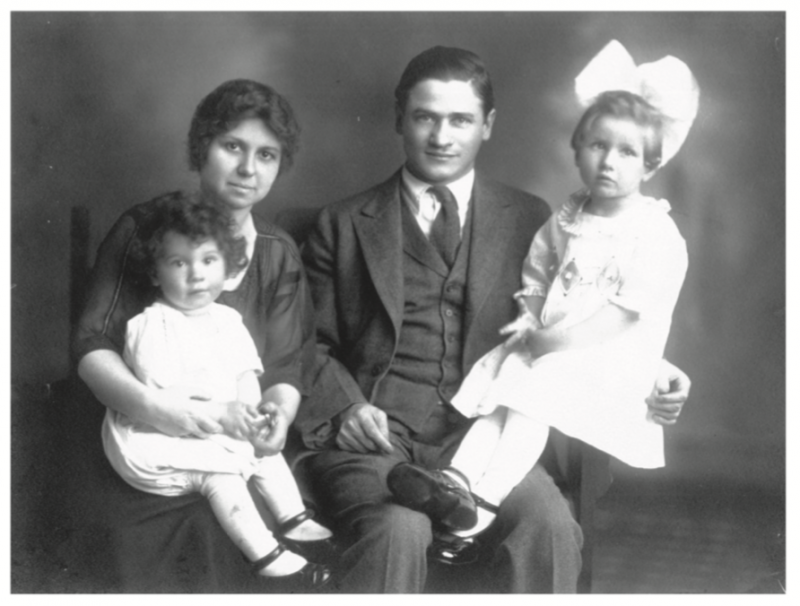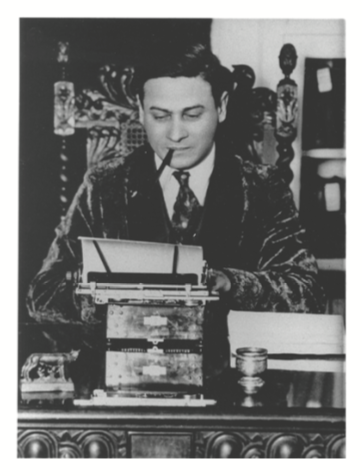AN OPPONENT OF DIGNIFIED BUNK
When Emanuel Haldeman-Julius drowned in his backyard swimming pool, on July 31, 1951, he was popularly regarded as a has-been, even in his adopted hometown of Girard, Kansas. Denounced as a communist in national newspapers and investigated by J. Edgar Hoover’s FBI, he had recently lost a federal tax evasion lawsuit and was facing time in jail. Amid the cold war atmosphere of the time, schoolchildren around Girard whispered that Haldeman-Julius had actually been assassinated for being a Soviet spy; adults speculated that his death was a suicide—though the only note he left behind contained a silly joke meant for his wife.
It was an odd ending for a man who, in just over thirty years, had become one of the most prolific publishers in U.S. history, putting an estimated 300 million copies of inexpensive “Little Blue Books” into the hands of working-class and middle-class Americans. Selling for as little as five cents and small enough to fit in a trouser pocket, these books were meant to bring culture and self-education to working people, and covered topics ranging from classic literature to home-finance to sexually pleasuring one’s spouse. Distributed discreetly by mail order, Little Blue Books disseminated birth-control information not available in small-town libraries, advocated racial justice at a time when the Ku Klux Klan influenced politics, and introduced Euripides, Shakespeare, and Emerson to people without the means for higher education.

Haldeman-Julius’s Kansas press debuted writers like Will Durant, Bertrand Russell, and Clarence Darrow to the American public, and titles by Henry James found more readers in their Little Blue Book editions than in those from any other contemporary publisher. Endorsed by Emperor Haile Selassie of Ethiopia and carried to the south pole with Admiral Richard Byrd, Little Blue Books figured in the early education of twentieth-century writers like Saul Bellow, Ralph Ellison, Studs Terkel, Harlan Ellison, Louis L’Amour, Margaret Mead, and Langston Hughes.
In the midst of his publishing heyday, when asked how he might be remembered, Haldeman-Julius speculated that his obituary would mention how “I sold hundreds of millions of [books] and usefully served a portion of my generation with fairness, sincerity, and intelligence…. It may mention my forthright attacks on all forms of Supernaturalism, Mysticism, Fundamentalism, and respectable and dignified bunk in general.
“It may even go so far as to say that I changed the reading habits of Americans and created millions of new readers for the book publishers who followed me.”
After his death, national obituaries indeed cast the Kansas publisher as a kind of huckster visionary, though his influence was quickly forgotten as postwar prosperity and the advent of television ushered in a new era...
You have reached your article limit
Sign up for a digital subscription and continue reading all new issues, plus our entire archives, for just $1.50/month.
Already a subscriber? Sign in





